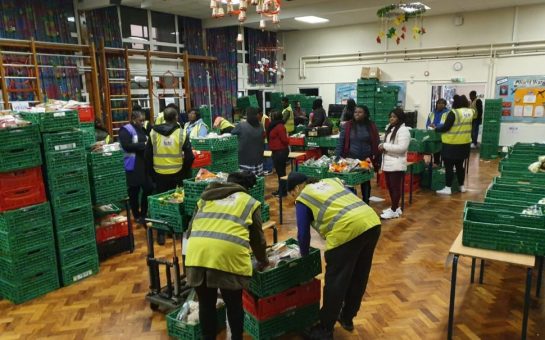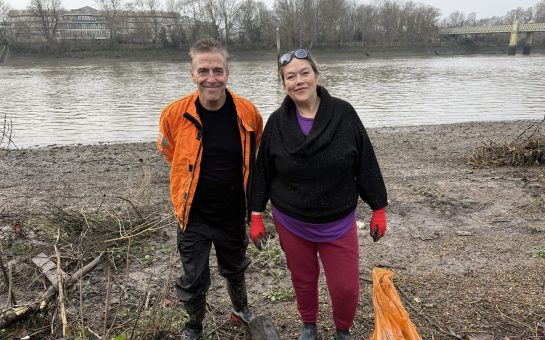Councils in south west London are largely failing to enforce idling despite pledging to fight climate change through declaring ‘climate emergencies’, data seen by SWL shows.
Merton council carried out no vehicle checks for idling – a practice which increases air pollution and greenhouse gas emissions – in the last three years, while Sutton and Kingston councils together did so only 43 times, Freedom of Information requests reveal.
Across the ten boroughs examined, councils issued only 132 fines for idling from January 2019 until late November 2021 – meaning on average just 1 in 1767 vehicle checks led to a fine.
“Switching off engines when parked is the easiest way to minimise air pollution and carbon emissions,” said a spokesperson for Idling Action London, a campaign group which raises awareness of the impact of idling on air quality and public health.
“With just a small change in behaviour people can help save lives and protect the environment.”
Idling, or leaving a engine running while a vehicle is stationary, is illegal under The Road Vehicles (Construction and Use) Regulations 1986.
Council officers have the power to ask idling drivers to turn off their engines, and issue £20-to-£80 fines if they refuse, but local authorities rarely do either.
Idling Action Group argues that while enforcement alone is unlikely to control engine idling, part of the issue also lies in the low level nature of fines failing to deter idlers.
“We would welcome enhanced enforcement powers for local authorities, higher fines, and fewer legal barriers to enforcement,” they said.
Engine exhaust, made up mostly of the greenhouse gas carbon dioxide (CO2) as well as carbon monoxide, also contains nitrogen oxides (NOx) and particulate matter, which pollute the air.
One recent study by the research group Transport Research Foundation found that idling over a 30-second period produced 48.3mg of NOx and 27.3mg of CO2, almost double the amount created when switching off then restarting an engine.
All ten councils have declared a ‘climate emergency’ at some stage in the last three years, meaning they are committed to reducing emissions to net zero sometime between 2030 and 2050.
But despite Croydon emitting almost 800,000 tonnes of CO2 in 2019, according to Greater London Authority data, the council made only 592 vehicle checks in three years.
Hounslow, which emitted a similar amount, issued nine fines over this period, and does not record vehicle checks.
Although idling is just one contributor to air pollution, experts argue it is still important to discourage the practice, especially given how easy and cost-effective enforcement against it is, sitting within an already existing legal framework.
In high concentrations, NOx leads to breathing problems, asthma and reduced lung function, according to the European Environment Agency.
Fine particulate matter, considered the most dangerous pollutant, can affect fertility and cause lung cancer.
In 2019, the levels of both NOx and fine particulate matter were the highest in Kensington, Hammersmith and Fulham and Lambeth of the ten boroughs looked at, according to estimates from Imperial College London.
These concentrations, which do not even take into account pollution caused by idling, far exceed the levels considered safe by the World Health Organisation – an annual mean of 5 μg/m3 for fine particulate matter and 10 μg/m3 for NO2.
Despite this, Hammersmith and Fulham council issued just 43 fines for idling, while Lambeth handed out 79. Kensington issued no fines, though its officers checked on an average of 1,181 drivers a year.
The same research estimated that 841 people had died in these ten boroughs in 2019 due to air pollution, including over 100 in Croydon.
But despite this four councils carried out fewer than 600 yearly vehicle checks, including Croydon where deaths related to air pollution were estimated to be the highest of the ten boroughs in 2019.
Dr David Dajnak, co-author of the Imperial College London study and academic at the university’s Environmental Research Group, argues the impact of idling is probably the most serious near schools and hospitals, where cars often stop but also where vulnerable people and children are.
“We would encourage local authorities and other authorities to make any effort possible to improve air quality beyond the current legal limit recognising that there is no safe level of air pollution,” he said.
SWL contacted Merton, Croydon and Hammersmith and Fulham councils for comment.




